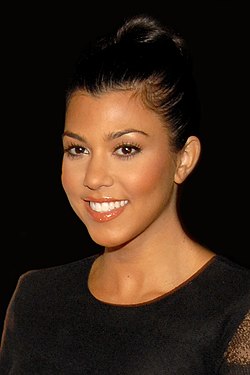| Gender | Unisex |
|---|---|
| Language(s) | English |
| Origin | |
| Language(s) | Norman, French, Irish, English |
| Word/name | Courtney (surname) |
| Region of origin | England, France, Ireland |
| Other names | |
| Variant form(s) |
|



Courtney is a unisex given name that is a transferred use of the Norman French surname and place name Courtenay, meaning "domain of Curtius". [1] Courtenay was used as a given name for men beginning in the 17th century (e.g. the British Member of Parliament Sir Courtenay Pole, 2nd Baronet, 1619-1695). [2] Courtenay has been in use as a given name for women in the Southern United States since the 18th century. American woman Courtenay Tucker (1704-1757) resided in Charles County, Virginia. Female descendants of Tucker were given the name. During the 19th century, most women with the name lived in the Southern United States. [3] As a given name for women it gained increased usage in the years following the 1956 publication of Pamela Moore's novel Chocolates for Breakfast , whose protagonist Courtney Farrell sometimes wishes she had been born a man. [4] American rock musician Courtney Love, born in 1964, was named after the character. It was considered a surname style name for girls. [5] Courtney appeared among the 1,000 most popular names for American girls for the first time in the 1960s. The name was further popularized by Courtney Patterson, a character played by Natalie Wood in the 1973 American television film The Affair . In 1977, a study by psychologist Richard Zweigenhaft found that the name Courtney had an image of intelligence, leadership, and upperclass connotations. The name peaked in the United States in 1990, when it was the 17th most popular name for girls. It experienced a slight bump in popularity in 1995 due to the appearance of actress Courteney Cox on the American television sitcom Friends , but has declined in use and last appeared among the top 1,000 names for American girls in 2017. It was given to only 99 girls in the US in 2024. [6] Spelling variant Kourtney had a slight increase in use in 2010 and 2011 in the United States due to the visibility of American reality television star Kourtney Kardashian. [7] Courtney was also well-used from the latter 20th century and early 21st century in other English speaking countries, including Australia, Canada, Ireland, New Zealand, and the United Kingdom. [8]
Contents
Spelling variations include Cortney, Courtenay, Courteney, Cortnee, Courtenay, Kortney and Kourtney.
Notable people and characters with the given name include: